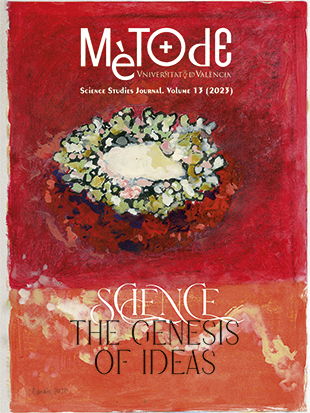Introduction: One world, one health
DOI:
https://doi.org/10.7203/metode.13.23768Keywords:
One Health, social science, environment, zoonoses, veterinary science Abstract
Abstract
Although a One Health perspective has, in one way or another, been around at least since the time of Hippocrates, the term itself was coined by William Karesh in a 2003 The Washington Post article. Since that time, the concept has been discussed, applied, and elaborated in numerous ways. Little, however, has done more to make the concept relevant to global concerns than the Covid-19 pandemic (the third major coronavirus to emerge in this millennium, including SARS and MERS). As is evident in the label, One Health essentially «is an intersectoral and interdisciplinary approach that focuses on where the health of humans, animals and environments or ecosystems converge» (Soares, 2020, p. 652). Although some who write on One Health have argued about definitional issues, such argumentation is not particularly helpful to our discussion at present.
 Downloads
Downloads
 References
References
Canali, M., Aragrande, M., Angheben,A., Capelli, G., Drigo, M., Gobbi, F., Tamarozzi, F., & Cassini, R. (2020). Epidemiologic-economic models and the One Health paradigm: Echinococcosis and leishmaniasis, case studies in Veneto region, Northeastern Italy. One Health, 9, 100115. https://doi.org/10.1016/j.onehlt.2019.100115
Grace, D. (2014) The business case for One Health. Onderstepoort Journal of Veterinary Research, 81(2), 725. https://dx.doi.org/10.4102/ojvr.v81i2.725
Soares, A. (2020). William Karesh: Championing «One Health». Bulletin of the World Health Organization, 98(10), 652–653. https://doi.org/10.2471/BLT.20.031020
Downloads
Published
How to Cite
-
Abstract1124
-
PDF629
Issue
Section
License
![]()
All the documents in the OJS platform are open access and property of their respective authors.
Authors publishing in the journal agree to the following terms:
- Authors keep the rights and guarantee Metode Science Studies Journal the right to be the first publication of the document, licensed under a Creative Commons Attribution-NonCommercial-NoDerivatives 4.0 International License that allows others to share the work with an acknowledgement of authorship and publication in the journal.
- Authors are allowed and encouraged to spread their work through electronic means using personal or institutional websites (institutional open archives, personal websites or professional and academic networks profiles) once the text has been published.





